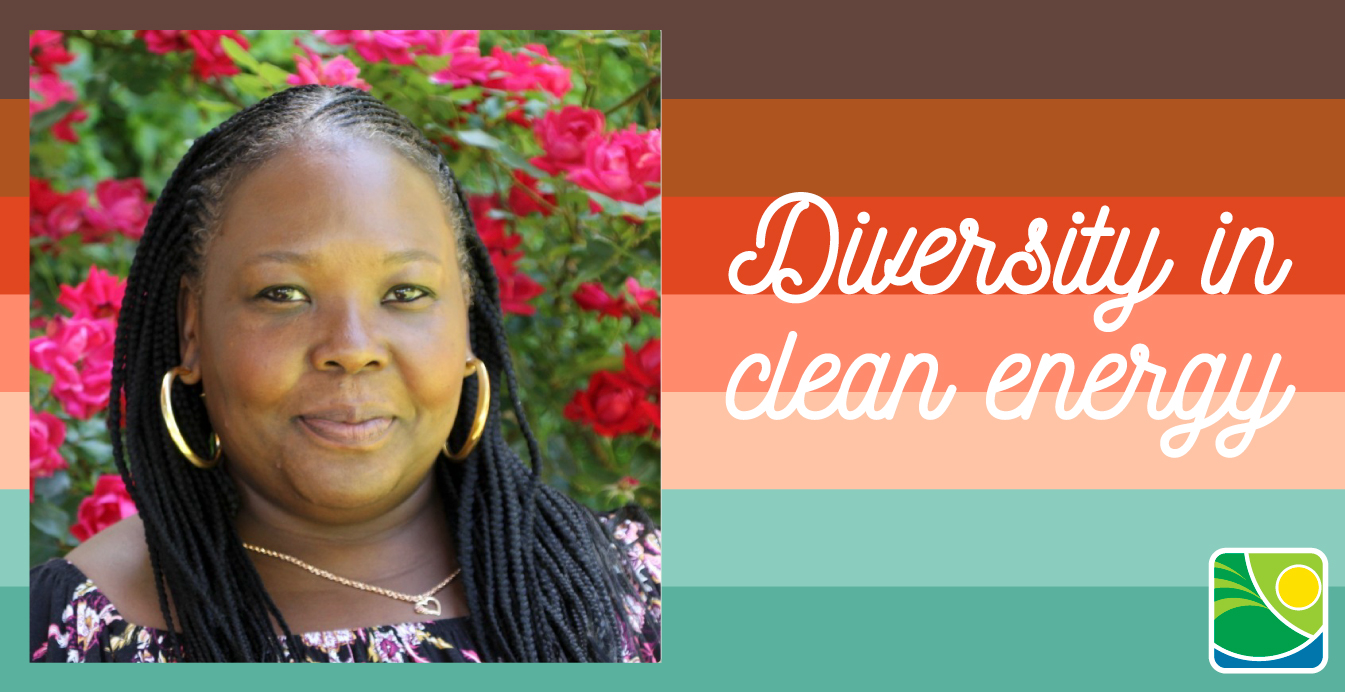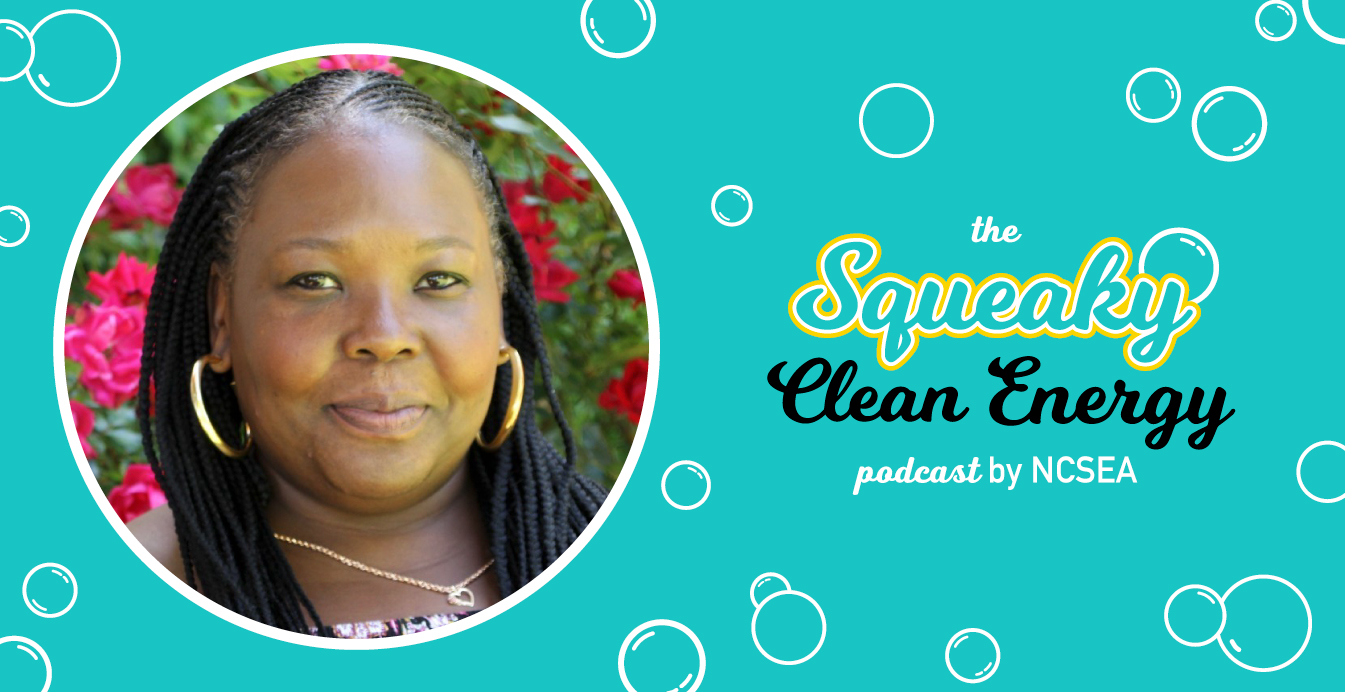Ajulo Othow: Pursuing a Future Powered by Equity, Diversity, & Inclusion
This feature is part of NCSEA’s ongoing focus on diversity in clean energy and the importance of creating an accessible, affordable future for all.
NCSEA had the opportunity to sit down and talk with Ajulo Othow, Founder and CEO of EnerWealth Solutions and General Counsel at Carolina Solar Services last November about House Bill (HB) 951: Energy Solutions for NC. The conversation took place at the Southeast Renewable Energy Summit in Charlotte, NC and was featured as a live episode on the Squeaky Clean Energy Podcast. Host Matt Abele was joined by Ivan Urlaub, NCSEA’s Chief of Innovation and Strategy, to discuss the implications that the bill would have for equity and access in the clean energy market. HB 951 marks progress in the energy transition, though the need for a clear vision and inclusive set of goals to link decarbonization and its distributed benefits remains an undefined imperative.
Ajulo Othow offered a unique perspective gained from an ever-evolving career focused on increasing the widespread benefits of clean energy. She founded EnerWealth Solutions in 2017 to generate additional wealth for low to moderate income households and communities across the state. She also joined the General Counsel of Carolina Solar Services to utilize a holistic approach while analyzing the ecosystem services of renewable energy projects throughout their lifecycles. This skill in systems thinking allows Othow to critically examine the strengths and shortcomings of HB 951.
In this conversation, Othow stressed that the bill provides a tremendous opportunity for NC to set an example for other states on how to be a leader in clean energy while sharing its benefits with all citizens. By effectively addressing distributional impacts and creating an inclusive environment for historically underrepresented stakeholders, such as working families, rural communities, and small businesses, NC can ensure accessibility and affordability for these groups. Othow also shed light on the disparity that exists between policymakers and low-to-moderate- income energy users, with its roots steeped in racism and prejudice. Many of these voices have been ignored or misrepresented in the past, with communities often not invited to the table. Misallocations of funding and investments have left individuals behind because of prohibitive cost barriers. Furthermore, initiatives like bill pay assistance have only served as temporary band aids instead of long-term solutions for these communities. Othow hopes that the participatory stakeholder process of HB 951 could help address these misjustices.
She acknowledged that though certain regulatory constraints exist for the future success of HB 951, she remains optimistic that NC is uniquely positioned to address these pressing issues. Othow also discussed the narrative on the state exceeding national expectations of its solar potential and becoming a leader in installed capacity. A gap of intended beneficiaries, however, has surfaced throughout this process. The potential to open the market for community solar and additional rooftop solar, putting money back into the pockets of consumers, is an opportunity that should not be ignored. Transparency, collaboration, and data-backed discussions, explains Othow, must remain as pillars in the conversation on how to proceed.
Ivan Urlaub, who also joined the episode, touched on the importance of establishing clear goals and metrics that benefit all energy users. As Director of Equity, Diversity, and Inclusion at NCSEA, Urlaub stated that discovering ways to make clean energy work for everyone is the ‘ultimate goal.’ The conversation on an energy transition is no longer just about cost or technology, but about meeting consumers where they are. Innovation and representation remain essential to fully realize the potential of a clean energy economy centered in empowerment. He also discussed the need to rethink the political maneuvering with Duke Energy and other entities at the NC Utilities Commission. Without an alignment of incentives and common ground, a path forward with HB 951 will remain tumultuous and uncertain.
Equal access and just distributional impacts can no longer be on the backburner of this discussion. NC has the opportunity to cultivate a vibrant and sophisticated energy marketplace by effectively addressing the energy burden and lack of inclusion in clean energy. As Ajulo Othow stated: “If we can make this work for everyone, the benefit flows both ways. Economic development and resiliency are directly linked.”
For the full conversation between Matt, Ajulo, and Ivan, check out Episode 59: The HB 951 Saga - What's Not in the Bill and be sure to head over to NCSEA’s webpage on HB951 to learn more about the bill.



